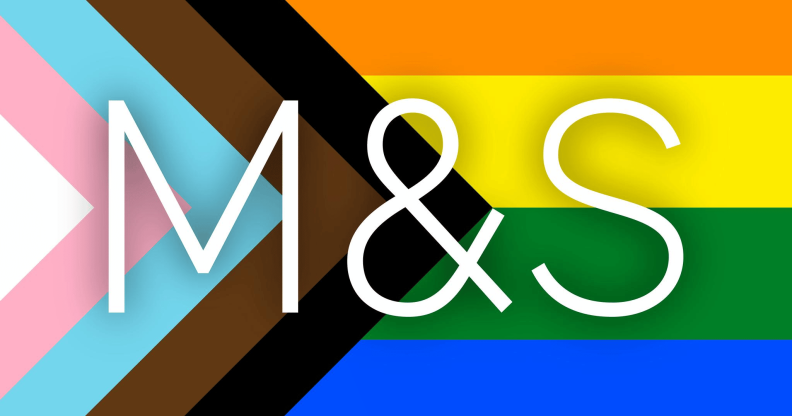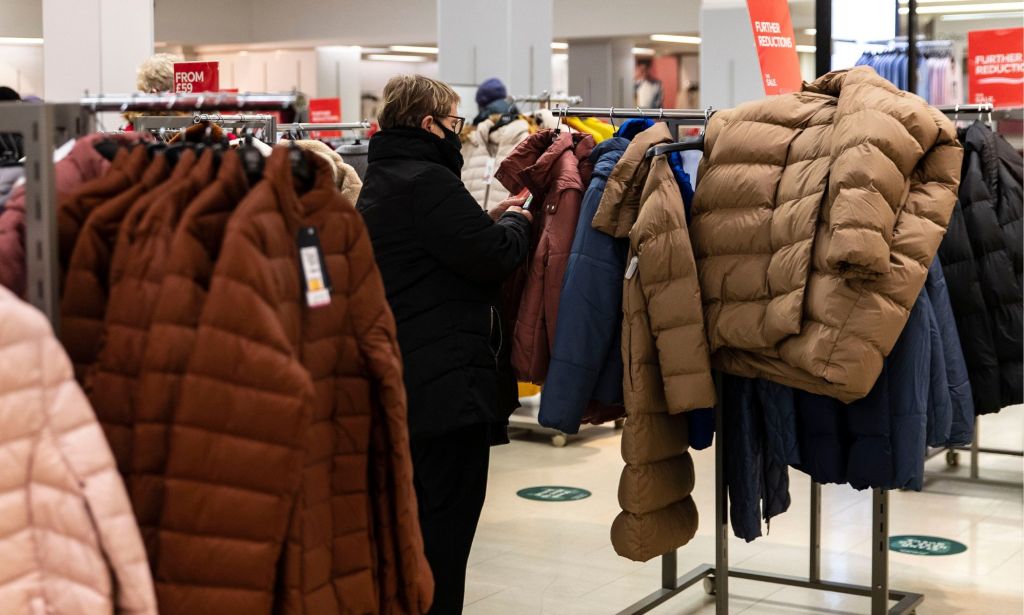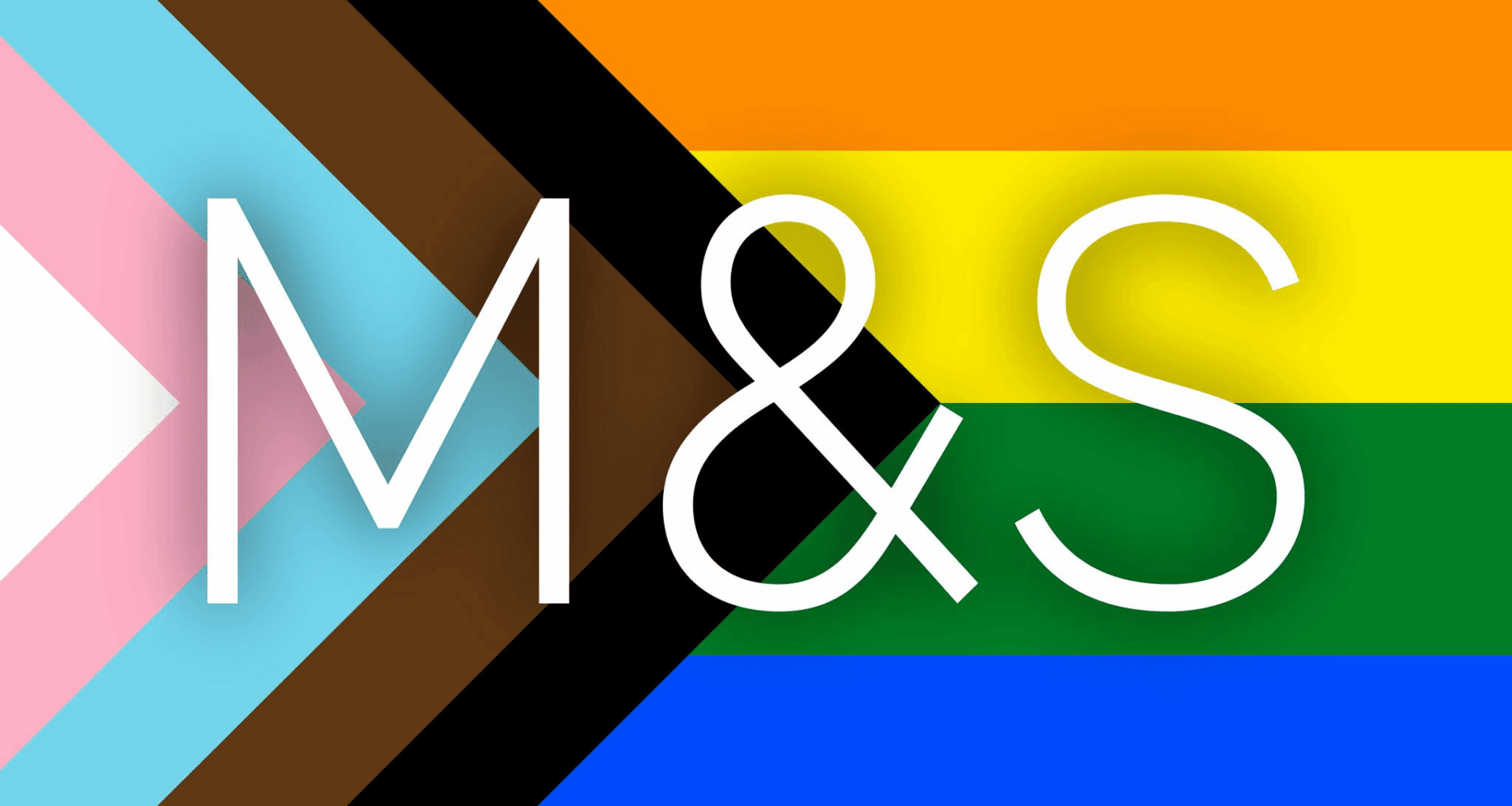
M&S changed its Facebook profile picture to incorporate the Progress Pride flag in 2022 (M&S)
After a supposedly ‘trans’ employee at Marks & Spencer dared to do their job and offer help to a customer, gender critical activists have called for people to avoid the popular high street chain – seemingly forgetting they were already meant to be observing a self-imposed boycott.
Earlier this week, it emerged that M&S had issued an apology to a mother and her 14-year-old daughter after they complained that an employee, who they allege was trans, had offered them assistance on the shop floor.
The mother claimed that she and her daughter had entered the lingerie section of an M&S branch hoping to arrange a bra fitting, when the shop assistant approached them and ‘politely’ offered to direct them to the right section of the shop.
In a complaint to M&S, shared by The Telegraph, the mother alleged that the staff member was a “biological male” and said her daughter was “visibly upset” and felt “freaked out” after leaving the shop. She claimed it was “obviously the case” that the employee was trans because they were “at least 6ft 2in.”
On X, a number of users – including author JK Rowling – have demanded that people stop buying from M&S following the anonymous customer’s complaint.
“My daughter recoiled, so I politely declined the offer and we left immediately,” the complaint continued.
“We deeply regret the distress your daughter felt during her visit to our store. We understand how important this milestone is for her, and we are truly sorry that it did not go as you had hoped,” a customer service assistant for M&S said, promising next time the teenager visits she “receives assistance from a female colleague”.
M&S’s apology has since prompted widespread backlash from customers and members of the public who support trans rights, with over 400 people signing an open letter criticising the retailer.
The open letter was published on Wednesday (6 August) and urges Marks & Spencer to retract its apology while expressing “serious concern and disappointment” over its reaction to the complaint.
 The allegedly trans employee had reportedly asked if the pair needed assistance in the clothing section of the shop. (Getty)
The allegedly trans employee had reportedly asked if the pair needed assistance in the clothing section of the shop. (Getty)
JK Rowling – who is well-known for her contentious views on the rights of trans people – cited the outcome of the much criticised UK Supreme Court gender ruling from April in her demands for a boycott.
“It’s time for women to vote with their wallets,” the gender-critical author wrote. “If stores like M&S continue to flout the Supreme Court ruling on women-only spaces, prioritising the wishes of men who want to undress near, or help fit bras on teenage girls, a boycott seems appropriate.”
However, what Rowling and other gender-critical figures seem to have forgotten, is that last November a similar boycott was called after an M&S advertisement aimed at youngsters buying their first bra led to complaints.
The ad, which appeared in stores, was a poster which showed two smiling teenage girls and one bra, alongside details about the sizes available and the words: “Smart. Strong. Supported. First bras for fearless young things.”
Gender-critical activists took issue with the phrase “young things” and claimed it dehumanised and erased women.
GB News presenter Bev Turner reposted the images to her official account, writing: “Your shop is a crucial part of British identity. You are important and you need to thrive. But this sign dehumanises all young women at the very moment when they must not feel embarrassed or ashamed of their femininity.
“We need to celebrate them becoming adult females, not erase them. It is not the job of our daughters to make confused boys in bras feel better about themselves. I’m truly shocked.”
Dear @marksandspencer
Your shop is a crucial part of British identity.
You are important and you need to thrive.
But this sign dehumanises all young women at the very moment when they must NOT feel embarrassed or ashamed of their femininity. We need to celebrate them becoming… pic.twitter.com/FjZ1DC7LfA
— Bev Turner (@beverleyturner) November 1, 2024
In response, M&S caved to the “outrage” and responded: “We’re taking this poster down and we’re sorry we got it wrong this time.”
However, the phrase at the heart of the matter – “young things” – been in use for more than a century.
The “Bright Young Things” was the name of a group of wealthy, Bohemian young people living London in the 1920s who threw extravagant parties, as well as carrying out outrageous – and very public – scavenger hunts around the city. The celebs of their time, they typified the vibrant new attitudes of the roaring twenties youth.
M&S using “young things” to describe those entering adolescence was likely a way to convey the notion of era-defining confidence and individuality rather than as a way to specifically exclude cisgender women.
 The pronoun badges for M&S staff (David Parke/LinkedIn)
The pronoun badges for M&S staff (David Parke/LinkedIn)
What’s more, M&S also faced calls for a boycott from anti-LGBTQ+ activists in 2023 over their Christmas advert. Encouraging people to shun the endless expectations and chores of the festive season, the ad showed various celebs burning Christmas cards, throwing a board game into a fish tank and hitting an elf toy with a bat.
However, many slammed the retailer as “woke” for daring to feature gay and Black people in the commercial.
A year before that, people also complained when M&S used the trans-inclusive Progress Pride flag on social media in June 2022, And in 2021, there was outrage when the retailer added pronouns to staff name badges.
How did this story make you feel?
🔥
Fired up
❤️
Love
😊
Happy
😐
Meh
😡
Annoyed
😢
Sad
Sending reaction…
Thanks for your feedback!

